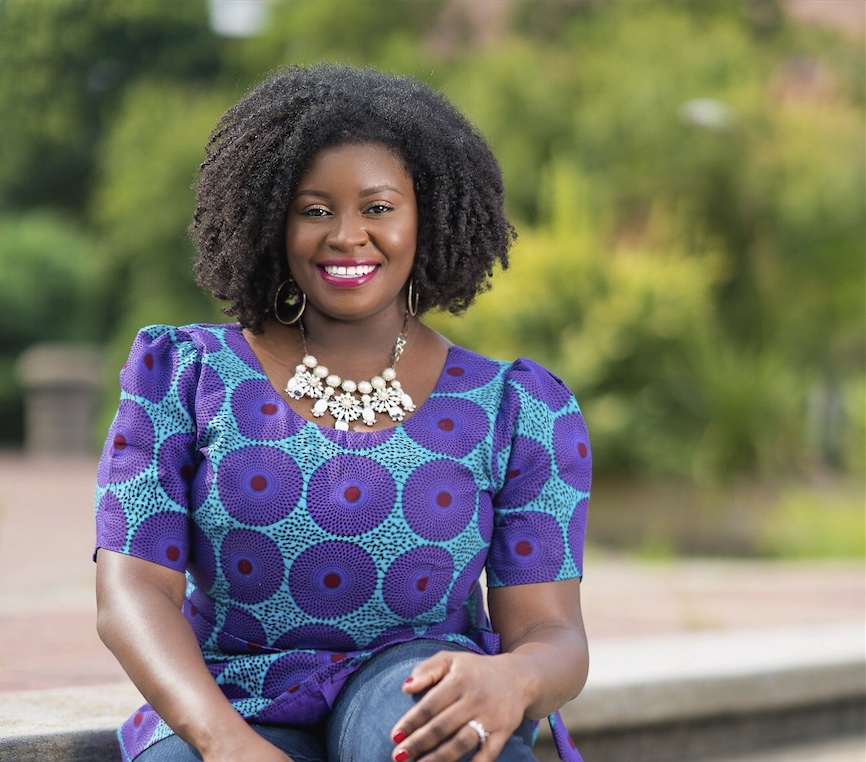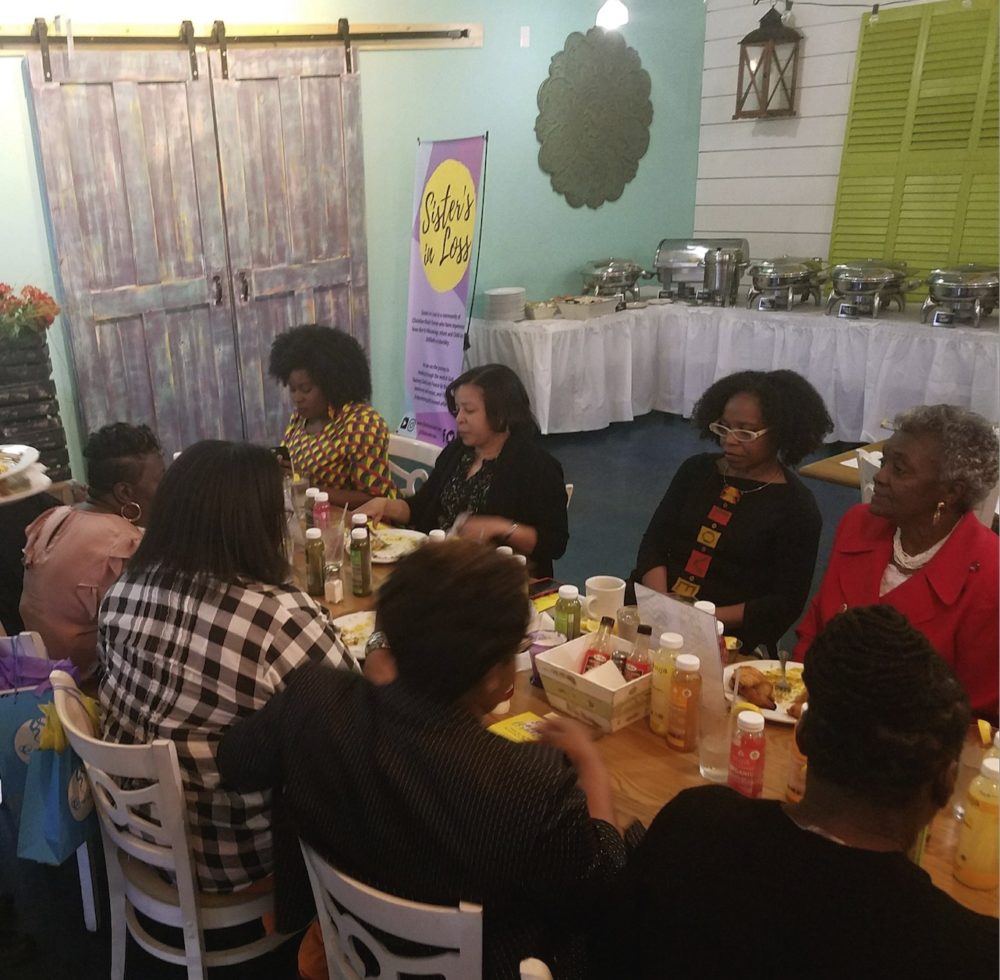[ad_1]
In November 2012, when Virginia native Erica M. McAfee lost her son at birth, she felt the loneliness, shame, and isolation that comes after the death of a child.
“I was broken and empty and my immediate family couldn’t console me,” said McAfee. “No one in my circle of friends was pregnant yet, or had an infant loss experience. I turned to the Internet to find stories and I found many women online who had experienced pregnancy loss, but they didn’t look like me. In 2014, I had Maxwell, my rainbow baby (a baby that is born after a miscarriage, stillbirth, or loss of an infant). I started to share more of our story about how we almost lost our lives during birth due to a placenta abruption. My son was diagnosed with Cerebral Palsy so we moved closer to our family to have support. During my 4-hour commute to work, I fell in love with listening to podcasts. My husband and I knew we wanted to grow our family, and I wanted to hear more stories black women struggling through grief, loss, and infertility.”
On a mission to turn her pain into purpose, McAfee became a Pregnancy Loss Grief Coach, and Birth & Bereavement Doula. In 2017, she launched Sisters in Loss L.L.C.—a coaching program, podcast community of 10,000 and series of resources, and retreats to help black women heal, gain clarity, and find an empowering path forward after loss.
“At first it was difficult to get black women to share their experiences,” said McAfee. Then, as more celebrities and influencers like Beyoncé, Serena Williams, Remy Ma, and Kandi, and Eudoxie began sharing their journeys, black women started saying yes I experienced that as well. Can I share my story? Since March 2018, the podcast is 6 months booked out because of the many women willing to share their stories and journey’s to motherhood.”
Hiding in Plain Sight
Here’s a harsh reality. More than 6 million women and couples suffer from infertility, and black women are 3-4 times more likely to die from pregnancy-related complications and infant death than white women according to the CDC. Yet, every day millions of black women show up for work suffering in silence, dealing with cultural shame and age-related pressures of society.
Recently, during an interview with Good Morning America, former first lady Michelle Obama revealed 20 years ago she suffered a miscarriage before having daughters Malia and Sasha. “I felt like I failed because I didn’t know how common miscarriages were because we don’t talk about them,” Obama said. “We sit in our own pain, thinking that somehow we’re broken. I think it’s important to talk to young mothers about the fact that miscarriages happen.” Ultimately, she and her husband, former President Barack Obama used IVF to conceive their daughters.

Erica M/ McAfee
“Not many black women are sharing their stories and journey’s good or bad about motherhood,” said McAfee. In our community, we keep these “secrets” to ourselves, versus sharing it to free others from the shame.” McAfee also shared a few misconceptions she often hears:
-Black women are very fertile and can get pregnant as soon as we stop birth control or contraceptives.
-If you already have a child that you shouldn’t experience infertility.
Turning Pain into Purpose
Beyond creating safe and supportive spaces for black women, Sisters and Loss are working to see legislative changes, for more research around black women mortality and infant outcomes.
“I’m working on this by using my podcast programming and platform to highlight specific issues that will affect us from a legislative perspective,” said McAfee. This includes advocacy at the state level and federal level to pass bills to provide more substantial testing for fertility and universal health care for all, paid in full IVF treatments and midwives and Doula services covered by insurance. Also, out of pocket expenses for fertility treatments is why many black women and couples do not pursue this path to motherhood. We simply don’t have tens of thousands of dollars in disposable income to spend on one treatment of IVF ($30K), and if that treatment isn’t successful it can be discouraging and depressing.”
Watching Michele Obama share her story gave McAfee more fuel to turn her message into a movement.
“Our Forever FLOTUS freed us with her voice by saying she felt alone, felt unworthy, and was in pain,” said McAfee. “When black women share their stories, they invite others to share and shatter the stigma around miscarriage and infertility and they will change the world. I’m proud to be a bridge and connect women in a sisterhood that is rooted in our faith in God and faith in ourselves to push past grief to achieve their dreams and career goals. I love coaching clients on their journey’s to motherhood and helping them bring a happy and healthy baby home from the hospital. This work continues to inspire me because of the messages I receive daily thanking me for giving black women a voice and a platform to share their stories. “
[ad_2]
Source link

